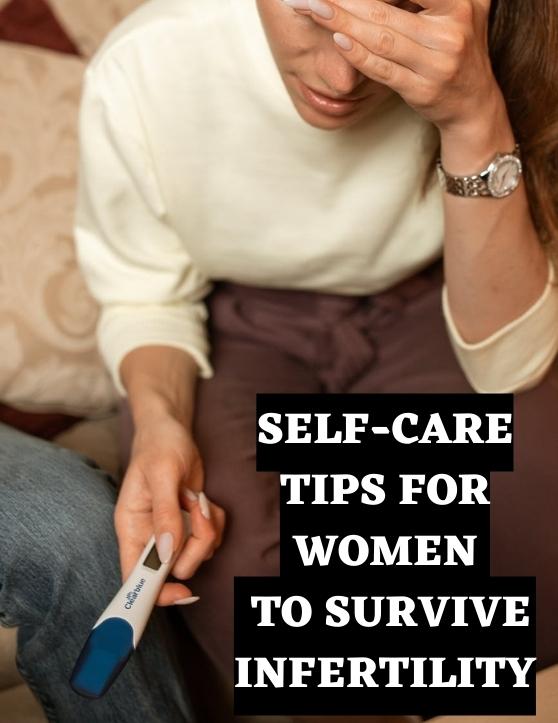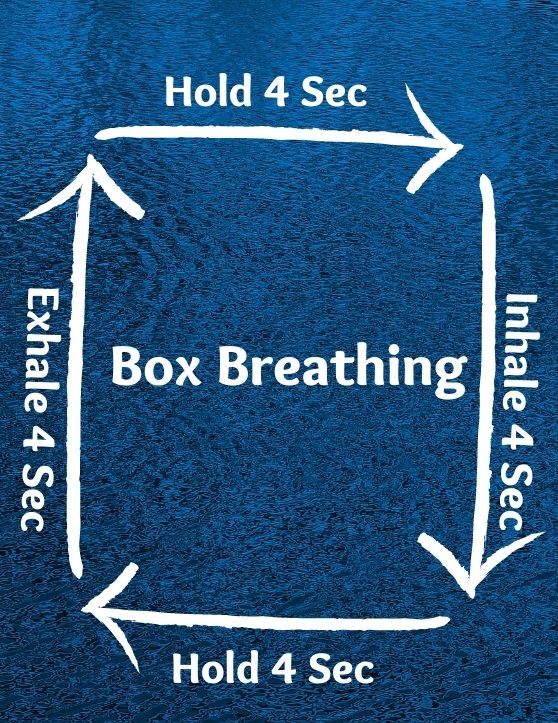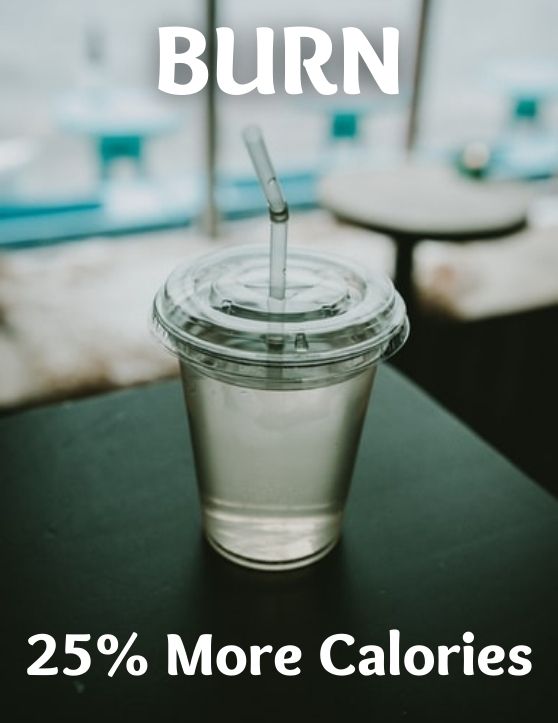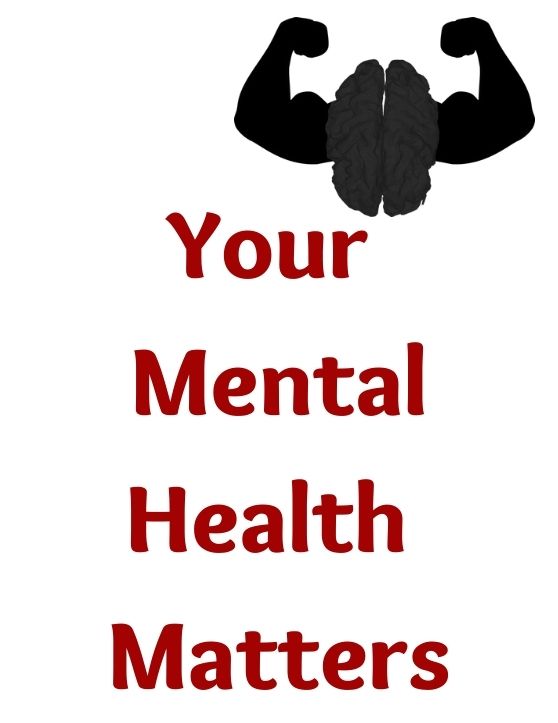The Self Care Plan: A Complete 365 24/7 Plan for Well-Being
We all deserve to be happy and live a fulfilling life. Sometimes we need help getting there. That's where I come in! My goal is to provide you with the tools necessary for self-care and wellness so that you can finally achieve your goals, feel confident in yourself, and do all of those things that make you happy.
This Self Care Plan will show you how to get back on track if you're struggling, what needs are most important for wellness, and how to prioritize them every day. You'll learn about different methods of relaxation, healthy eating habits, and more —all while making sure that each day includes some time just for YOU! Let this plan guide your journey by providing direction and support as needed.

WHAT IS SELF CARE?
Many people are under the impression that self-care is the same as self-indulgence, but that's not true.
Self-care means taking care of yourself to be healthy, be well, do the job, help and respect others, and do all the things you need to and want to achieve.
WHO defines self-care as “the ability of individuals, families, and communities to promote health, prevent disease, maintain health, and to cope with illness and disability with or without the support of a healthcare provider.”
The reach of self-care as described in this definition includes:
- Health promotion.
- Disease prevention and control.
- Self-medication.
- Providing care to dependent persons.
- Seeking hospital/specialist care if necessary.
- Rehabilitation, including palliative care.
Integrated into the concept of self-care is understanding that whatever factors and processes may define behavior, and whether self-care is beneficial and associates properly with professional care, it is the person who acts (or does not act) to conserve health or respond to symptoms.

Self-care involves:
- hygiene, both general and personal;
- nutrition, i.e., type and quality of food eaten;
- lifestyle such as sporting activities, leisure, etc.;
- environmental factors like living conditions, social habits, etc.;
- socioeconomic factors as in income level, cultural beliefs, etc.;
- And self-medication.
WHAT IS A SELF CARE PLAN?
A self-care plan is a thoughtfully constructed and intentionally engaged guide (wellness curriculum) to promote our health and wellbeing.
A self-care plan uses the concept of being a life-long learner and involves you in building a curriculum of knowledge, arts, and perspectives to support your wellbeing.
A self-care plan helps improve health and wellbeing, manage stress, and maintain discipline. It helps you to learn and identify activities and practices that support your wellbeing as a professional and helps to sustain positive self-care in the long term.
WHY SHOULD YOU CREATE A SELF CARE PLAN?
A self-care plan is an intervention tool that serves the following purposes:
1) Works as a preventative measure. Only a person can know how much stress s/he has to deal with. By devising a self-care plan, you create a roadmap to turn to during times of crisis.
A self-care plan saves time and effort when you are anxious or stressed. It contains all the resources and plans you can use if faced with a sudden emergency or stress.
2) Having a plan takes the guesswork and uncertainty out in moments of crisis. Uncertainty can be terrifying. A self-care plan ensures you have all the options and strategies ready and customized to any stressful situation you can find yourself in. It helps you respond instead of reacting to the situation at hand.
3) It protects from distractions. A self-care plan establishes a routine. It prevents you from procrastinating on essential tasks and from making lame excuses. It essentially helps to avoid any distractions and keeps you on the right course.
WHAT ARE THE TYPES OF SELF CARE?
It is a well-known fact that self-care is vital for mental health and overall wellness. But like no two people are alike, their definition of self-care will also not be interchangeable.

For one, self-care might mean a little “me-time” where you can read a book, while others might not enjoy reading a book that much. In this case, the other person doesn't have to read the book for the sake of self-care; they can find their own category of self-care that they can work upon.
There are broadly nine types of self-care, all being equally important. Remember, the most important thing is to never give up.
- Physical self-care includes all the activities you deliberately engage in to enhance your physical well-being. It acts as a baseline, and to create a strong foundation for self-care, it is essential to meet this baseline. It involves basic activities like brushing teeth, taking a nice shower, drinking the optimum amount of water, eating healthy, and getting beauty sleep. You can also try doing some light exercises.
- Emotional self-care involves activities that help you connect, process, and reflect on a full spectrum of emotions. What food is to our stomach, information is to our mind. You need to take some time off from all the negative information and news we feed to our brain daily. Instead, try journaling, or any other activitie that makes you feel emotionally fulfilled. It can be anything that makes you happy; it could be painting, singing, reading a novel, or doing some volunteer work.
- Mental self-care is any activity that stimulates your mind or intellect and falls under this category. We run away from learning new skills that are not for work or college. This is the reason why no one typically learns something in-depth anymore. Learning something new can recharge the brain and make you feel excited about knowing an entirely new thing. It could be achieved by reading books, taking new courses, listening to podcasts, or watching a documentary. Learning new things keeps the brain young and reduces the odds of developing dementia in later stages of life.
- Practical self-care involves tasks you complete that fulfill core aspects of your life to prevent future stressful situations. It might include organizing the email box, tidying the living space, setting out clothes for the work in advance, or creating a budget. These activities essentially help to reduce stress.
- Professional self-care: For a person who is employed, making time for professional self-care is very important. Activities falling under this category ensure that you have a balance between work life and personal life and setting boundaries that are allowed to be set. It includes communicating your boundaries openly with colleagues and the boss and making each day productive by keeping structured calendars and to-do lists.
- Spiritual self-care: All the activities that nurture your spirit, provide calmness, and allow you to think bigger than yourself fall under spiritual self-care. Spiritual self-care does not necessarily have to be religious, although sometimes it is. A spiritual experience can be experienced when you are fully immersed in your favorite activity.
- Social self-care: This type of self-care nurtures and deepens the relationships with people in your life. Being social beings, humans need regular connections with others to thrive. Social interaction helps you feel fulfilled, validated and loved. You should try to practice reaching out when you need help or company.
- Environmental self-care: It is the practice of taking care of your environment. Studies show that people with a messy home or work desk tend to be more depressed than those who live in a clean environment. Being able to find things right when needed is a different kind of bliss that, believe it or not, provides a calmness.
- Financial self-care: Financial worries can affect you emotionally as well as mentally. With financial independence comes a sense of security. It is essential to keep track of your earnings and spending. Listening to financial podcasts or reading such magazines can impart knowledge into you that can be used to gain financial independence. Investing judiciously is an undefeated way of working towards it.
HOW TO CREATE A SELF CARE PLAN
Designing and following a self-care plan helps you balance your mental, physical, and emotional requirements while reminding you of the self-care goals you wish to accomplish. As self-care is a personal activity, creating a self-care plan involves identifying your stress levels and the activities that work best for you.
By following these steps, you can devise a self-care plan customized according to your stressors and goals.
Determine the stress level
You need to recognize stress in your life and how it affects you. Many people don’t realize the effect that tension has on their lives and sanity. One quick way to assess the stress level is to list things that appear to be a product of stress and categorize them into nine self-care categories. For example, sleeplessness will be categorized as a physical effect, and anxiety will be categorized as an emotional effect. It will help to understand the areas of self-care that need more attention.
Identify the stressors
Next, you need to list factors that cause you stress in your personal life, at work, or at social gatherings.
Time to reflect
Keeping these lists in mind, the next step you need to follow is to jot down the coping strategies that you currently use. When you start writing down those strategies, you may realize that some of them are unhealthy. Binge eating under stress, for example, can be easily classified as an unhealthy coping mechanism. Such unhealthy strategies should be replaced with healthy ones as soon as possible.
Classify self-care activities
To make a personalized self-care plan, you must know what activities work best for you and what don't. For example, someone might like cooking while others enjoy more athletic activities like swimming or playing football. What you enjoy depends on your likes.
Set a date
To make the self-care plan as easy to follow as possible, you must put it in the calendar or a journal in an organized way. If you like routine, you can try making each activity a recurring event, happening every week or every month. If you prefer more spontaneous plans, you can check in with how you feel regularly and factor in your self-care activities as and when you need them.
Create a backup
Things tend to happen unexpectedly in life. And during those times, you may need a moment to look inside and work on yourself. It is recommended to have a few self-care activities planned for when this happens – it could be as simple as taking a coffee break or perhaps planning to work from home during a particularly intensive project.
Knowing what might make you feel better in times of need will make it easier for you to handle your emotional, mental, and physical health when feeling stressed.
TIPS FOR CREATING AN EFFECTIVE SELF CARE PLAN
Here are a few tips you can benefit from while making your personalized self-care plan.

MAKE YOUR OWN RULES
Many people have a preconceived opinion about self-care and assume that they have to engage in specific tasks only. But self-care is what you make it. For a customized self-care plan, you must follow your own rules.
You can opt to build a daily, weekly, quarterly, or annual self-care regimen. This may include a 15-minute meditation or regular journaling, adding an eight-hour sleep routine, or committing to quarterly mini-vacations (yes, please!!).
The main goal of self-care involves engaging in meaningful activities that reduce tension while promoting optimal health and wellness.
BE REALISTIC
It is advisable to create a realistic self-care regimen that considers your daily responsibilities and obligations. People often get overly ambitious and create a self-care plan that they fail to maintain.
Self-care should not be stressful. You need to be realistic about the investment of time and effort.
MAINTAIN THE BOUNDARIES AND ACCEPT THE BARRIERS
Maintaining boundaries can help you to identify barriers that may prevent you from maintaining a self-care regimen. Removing something that you feel is an unhealthy distraction is an act of self-care itself.
Boundaries are also important to maintain if you are working from home. You should carve out at least 30 minutes a day to eat lunch away from your workspace and identify a specific cutoff time for answering emails and doing work-related tasks.
BE IN THE MOMENT
When engaging in any self-care activity, it's essential to be in the moment. A necessary part of self-care is being present in the moment and being mindful about how your body and mind respond to your daily responsibilities and how that impacts your productivity. This allows you to take a step back and make a record of where you are overextending yourself.
Reflection is the best way to take account of what is affecting you. Once you know what makes you feel anxious or what is hindering your productivity you can then change it and move forward.
COMMIT
Consistency is the key. The self-care regimen won't work for you unless you work for it. You should make the most of your limited free time.
SELF CARE ACTIVITIES
Following is the list of a few self-care activities that you can do to spend some quality “me-time.”

Exercise
Exercise works like a mini blow of energy to the brain. It increases the flow of blood in the body and to the brain. The endorphins released in the blood while working out works by lifting the mood.
The critical thing to pay attention to is that exercise is bliss only as long as you enjoy it. It is not about pushing your limits. Exercise is self-care when it's about feeling good and enjoying, not when obsessing about losing weight.
Meditation
With more and more studies being conducted on meditation, it is safe to say that regular meditation has many benefits, including reduced stress, improved focus, less reactive behavior, and increased happiness. Not to forget, the instant calmness that follows meditation feels like a reward after a long day at work or school.
Meditation is simply sitting with your thoughts and noting them pass by without actively participating in them. Consistent meditation practice has a powerful influence on how your mind reacts to negative situations or feelings. The first few meditation sessions can prove to be a struggle, focusing the mind or finding peace with your thoughts, but the mind's ability to concentrate is sharpened through each practice.
Art and crafts
Indulging yourself in art and craft can be a fantastic way to release creative energy. The advantage of incorporating arts and crafts into the self-care routine is that it requires no skill level or artistic ability, and it puts you in a peaceful state of mind. Certain studies suggest that creating art can lower your cortisol levels, also known as the stress hormone, relaxing your mind.
Don't underestimate sleep
Sleep helps us recover from mental as well as physical exertion. Sleep and health are significantly correlated in poor sleep, increasing the risk of poor health, and poor health makes it difficult to sleep.
Common mental health ailments like anxiety and depression often result in sleep problems. Getting a good night's sleep makes you feel better and significantly improves your productivity and brain function.
Rest revives the brain, allowing it to learn and store more information. Insufficient sleep is linked with car crashes, poor work performance, and problems with mood and relationships. Studies show that sleep deprivation increases the risk of high blood pressure, heart disease, diabetes, obesity, depression, and stroke.
Spending some time in nature
Being out in nature has been shown to have many benefits on mental health. A little time with flowers and trees can improve your short-term memory. Nature has its own ways of calming us.
Spending time in nature reduces stress significantly. Apart from having mental health benefits, it also has effects on your physical health.
Being out in the sun for 15-20 minutes a day allows our skin to absorb enough vitamin D to strengthen bone, reduce chances of cancer and strengthen the immune system. Studies also show that being in sunlight regulates sleep patterns by releasing the right levels of melatonin.
Eating Healthy
Healthy food is not linked with only physical health. Studies show that essential nutrients like iron, folic acid, and thiamine strongly impact our moods. Iron helps to stabilize mood and energy levels.
Iron deficiencies are known to lead to lethargy and a depressed mood. Including iron-rich foods in the diet, such as meat, broccoli, seafood, and egg yolks, can help keep you feeling upbeat. To maintain a positive mood, you must limit your intake of sugar, white grains, caffeine, and alcohol.
Munching on healthy snacks like nuts, fruit, yogurt, and low-fat cheese provides a quick energy boost, and vital nutrients to help us live a strong, healthy, and happy life.
Take a long shower
Hot showers are known to release tension from muscles. Hot baths can relieve stress and soothe stiff muscles. Dipping the body in hot water up to the neck is sort of an exercise for the blood vessels. This is because water exerts physical pressure on the body, increasing the heart's capacity. In simple words, when inside the water, the heart works faster and more robustly. Just a few dips in the water a week is an excellent workout for the heart.
Spare some time to socialize
Getting out of the house when someone is not feeling up to it can be difficult. But sometimes it is the right thing to do. Making plans and hanging out with people you care about can lift the mood like nothing else. Surrounding yourself with positive relationships has a positive and cheerful effect on your mind and personality.
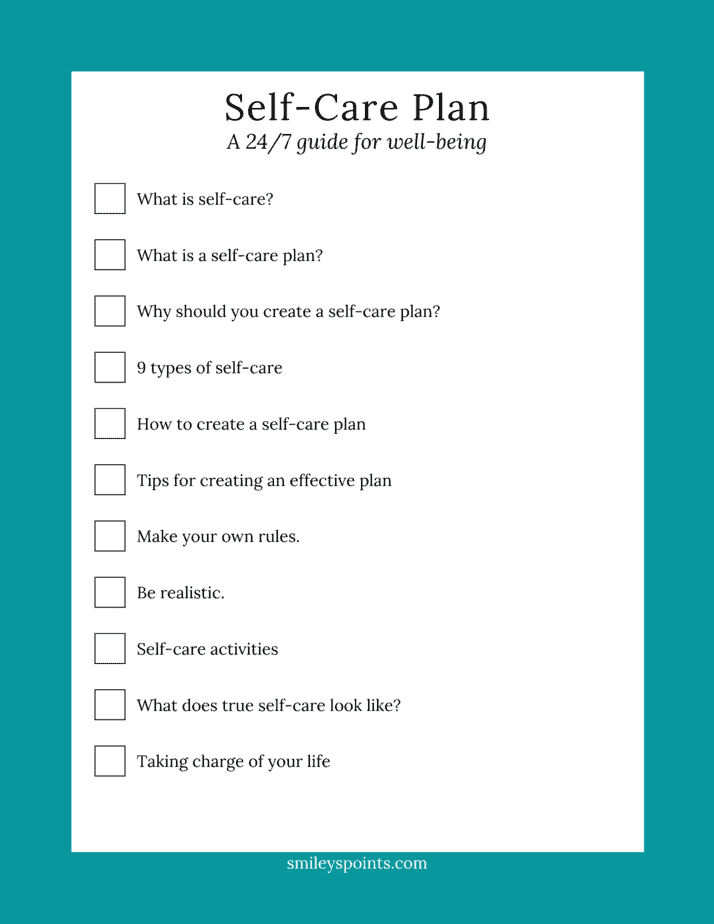
WHAT DOES TRUE SELF CARE LOOK LIKE?
Self-care is an often confusing concept. Some people think of it as being selfish, while some believe it is just about relaxing and taking a day off. Real self-care is about taking care of your mental, emotional, and physical needs. It's about learning to lead a happier life so that you don't need to look for escapes.
Self-care is simply doing things you enjoy
Any activity that you have to force yourself to do and doesn't make you feel good about doing it isn't counted under self-care.
Here are a few ways of practicing real self-care:
Taking charge of your life
We all had found ourselves in a situation at some point in our lives where we said yes when we actually wanted to say no. It is an unhealthy practice. Setting boundaries is the first step to self-care. It is not always easy to say no, but it is essential to lead a productive and fulfilling life.
Get rid of unhealthy substances
It's okay to drinnk some booze at a party once in a while, but it is not okay to treat alcohol as a remedy for stress or insomnia. Alcohol is known to reduce the thinking abilities of its consumers. It negatively affects the decision-making process and makes you vulnerable. If someone uses it when they are done, it will bring more intense emotions that will only worsen the situation.
Reflect
When it comes to taking care of self, self-reflection plays an important role. You must spare an hour a day to ask yourself questions about your goals and productivity. It is important to ask questions, and it is more important to look for answers within. This empowers you with a better understanding of yourself.
It is okay to ask for help
Real self-care is about setting yourself towards success and a better life. While trying to achieve that, you will most probably need help. Not asking or accepting help in times of need leaves people overwhelmed and stressed, leading to a breakdown. It won't only make things easier but will also open a new path to create stronger bonds with people you care about.
TAKEAWAY
Self-care is a very broad subject with a different meaning for everyone. But the essence of all its definitions is that self-care is caring about self and living life to its full potential. A self-care plan can prove to be a very helpful tool in achieving that.
Activities involved in that plan need to be customized and personalized according to your fallbacks, needs, and interests.
And lastly, it is important to understand what true self-care looks like because, without this understanding, you won't be able to judge if you're following the self-care plan because you are benefitting from it or following it just for the sake of it.

